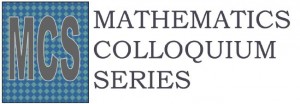NSU Newsroom
SharkBytes
Horizons
This version of NSU News has been archived as of February 28, 2019. To search through archived articles, visit nova.edu/search. To access the new version of NSU News, visit news.nova.edu.
This version of SharkBytes has been archived as of February 28, 2019. To search through archived articles, visit nova.edu/search. To access the new version of SharkBytes, visit sharkbytes.nova.edu.
Gather Together for Mathematics Colloquium Series Talk on Clusters, Oct. 5
The next talk in the Mathematics Colloquium Series will take place on Wednesday, Oct. 5, from noon to 1:00 p.m., in the Alvin Sherman Library, room 2053.
Ahmed Albatineh, Ph.D., assistant professor in the Department of Epidemiology and Biostatistics at Florida International University, will present, “A Method for Finding the Number of Clusters.”
About the Topic
This presentation proposes a maximum clustering similarity (MCS) method for determining the number of clusters in a data set by studying the behavior of similarity indices comparing two (of several) clustering methods. The similarity between the two clusterings is calculated at the same number of clusters, using the indices of Rand, Fowlkes and Mallows, and Kulczynski—each corrected for chance agreement.
The number of clusters at which the index attains its maximum is a candidate for the optimal number of clusters. The proposed method is applied to simulated bivariate normal data, and further extended for use in circular data. Its performance is compared to the criteria discussed in Tibshirani, Walther, and Hastie’s 2001 work. The proposed method is not based on any distributional or data assumption, which makes it widely applicable to any type of data that can be clustered using at least two clustering algorithms.
Established in the fall of 2009, the Mathematics Colloquium Series aims to increase awareness of mathematics’ importance and applications in daily life. The series also gives mathematics faculty members and students the opportunity to discuss independent research and share their passion for the subject. These talks are free and open to the public.
For more information on this lecture or the college’s Mathematics Colloquium Series, please contact Vehbi Paksoy, Ph.D., or Iuliana Stanculescu, Ph.D., assistant professors, Farquhar College of Arts & Sciences.